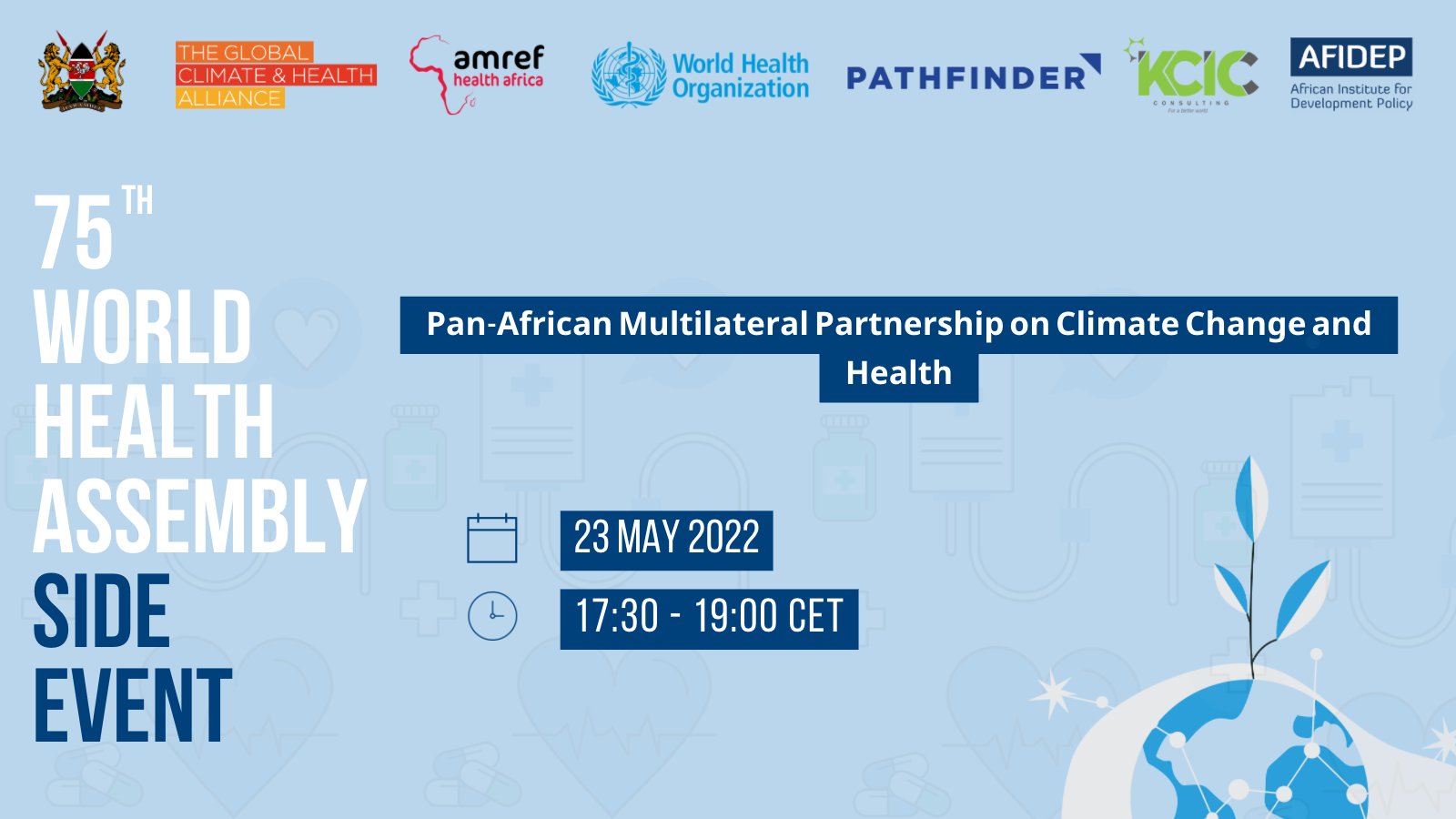Events

Background
Climate change due to increased greenhouse gases has led to increased temperatures triggering extreme weather conditions such as droughts, floods hurricanes and air pollution. Unfortunately, climate change is increasingly becoming a major cause of mortality leading to over 150,000 deaths annually as a result of extreme weather conditions. If nothing is done to reverse the climate change trends, an additional 250 000 deaths per year will be registered by the year 2030, emanating from malnutrition, malaria, diarrhoea and heat stress. It is further estimated that the direct health costs will reach US$ 2-4 billion/year by 2030, which poses major threats to the universal health coverage agenda. According to Intergovernmental Panel on Climate Change (IPCC), it is evident that people who are already most vulnerable and marginalized will also experience the greatest impacts. The poor, primarily in developing countries, are expected to be disproportionately affected and consequently in the greatest need of adaptation strategies in the face of climate variability and change. Further, the impact of climate change is inequitable. Women and youths are increasingly being seen as more vulnerable than men to the impacts of climate change, mainly because they represent the majority of the world’s poor and are proportionally more dependent on threatened natural resources. The difference between men and women can also be seen in their differential roles, responsibilities, decision making, access to land and natural resources, opportunities and needs, which are held by both sexes1. Worldwide, women have less access than men to resources such as land, credit, agricultural inputs, decision-making structures, technology, training and extension services that would enhance their capacity to adapt to climate change.
The climate crisis also threatens to deepen existing health vulnerabilities and create new ones including the geographic spread of climate-sensitive communicable and non-communicable diseases. The impacts of climate change are also evident at the systems level, particularly within health services and the provision of universal Health Coverage (UHC), eroding progress towards its three dimensions of (i) coverage of the people in need of care, (ii) cost of treatment, and (iii) the care services available. The crisis is also linked to increased food insecurities and hunger as well as potential lack of clean water. The climate crisis is affecting women and youth disproportionately, and hence worsening gender inequalities with overarching ripple effects on access to education and income, thereby promoting negative social-cultural norms.
In spite of the glaring effects of climate change on Africa’s population, the voice of the most vulnerable has not found space in decision making tables. In addition, regional and national cross-sector collaboration are somewhat weak, and local climate change and mitigation measures at different levels are dismal. This is exacerbated by minimal to no government commitment of and private sector involvement in addressing mitigation and adaptation means.
Objective
Expected outcomes
- The initiation of multi-sectoral South-to-south dialogue on climate change and health in line with the Libraville declaration on health and environment.
- Formation of Pan-African Multilateral Partnership for Climate Change and Health as a means for scaling up the climate action
- Civil societies and governments showcase achievements towards sustainable adaptation and mitigation measures against climate change with women, youth and universal health coverage in focus.
Related Posts





